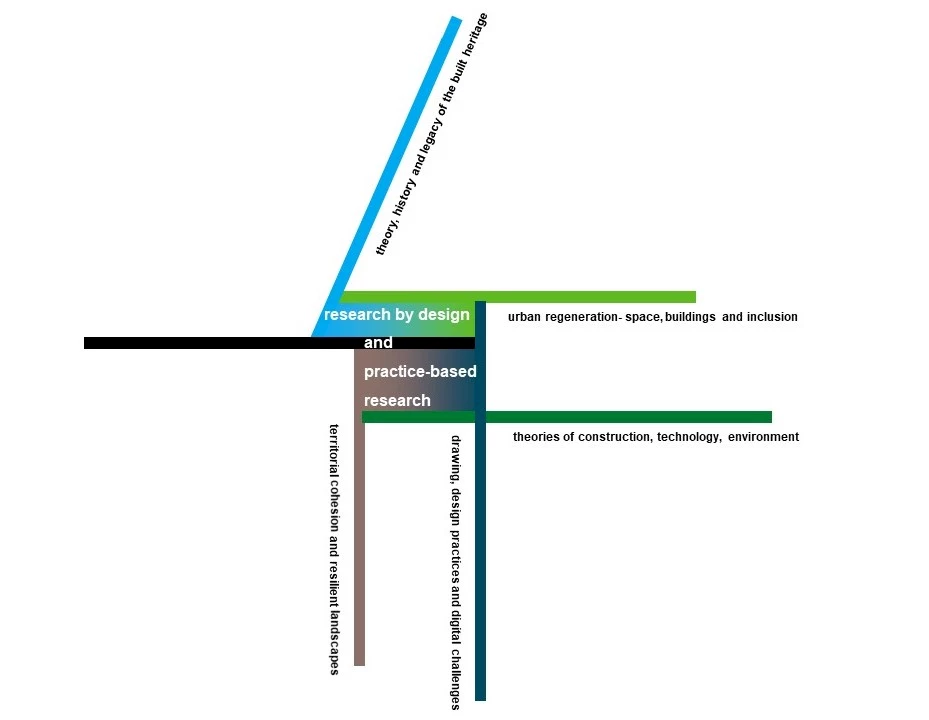Research
Matrix
Research by design and practice-based research
Facing the contemporary challenges that fall within ceArq- TD's research scope, research by design and practice-based research is elected as the central and differentiating matrix of the Centre, to which will contribute five thematic horizons in the near future, to be pursued in a rhizomatic fashion with the expected progression and expansion of the Centre.
Thematic horizons
Theory, history and legacy of the built heritage
By taking as essential the conflicts aroused by the theoretical readings of architecture directed to its disciplinary core vis a vis the acknowledgment of influences that come from the outside, the architectural processes is allowed to become more transparent, while making the built heritage — exceptional or not — available to contemporary challenges, politically, socially, and culturally charged.
Theories of construction, technology and environment
Thorough research on the existent building fabric is envisioned, translated into comprehensive characterizations, that aims to provide a rigorous base for future interventions. On the other hand, a continuous critical revision of normalized design approaches and technical solutions is urgent in the face of environmental issues.
Urban regeneration — space, buildings and inclusion
Urban regeneration — space, buildings and inclusion
Urban regeneration is not just about repairing buildings. It is about re-integrating urban areas that are falling into disrepair, giving new life to neighbourhoods, both physically and socially. In this context, public spaces become the stage for this transformation, fostering a sense of belonging and promoting social equity. The aim is to create vibrant and sustainable qualified urban environments that serve everyone and not just a restricted group.
Territorial cohesion and resilient landscapes
In an urban world undergoing a process of reconversion, this is a struggle to balance territorial development while ensuring that regions are prepared for future challenges, reinforcing social cohesion and the role of cities as engines of inclusive growth. The diversity of scales and types of problems demands the urgency for cross disciplinary research with expertise from different fields and agents, working on a common goal.
Drawing, design practices and digital challenges
Drawing, design practices and digital challenges
In design processes, drawing has evolved over time as a structuring and favoured instrument that empowers one to create visual objects, while opening new fields to design, compose, imagine and generate shapes, with the aim of poetically organizing the space as canvas, and canvas as space. At present, generalized digitization processes and artificial intelligence experiments question the current and future status of digital culture, which bring complex challenges to design practices overall.

